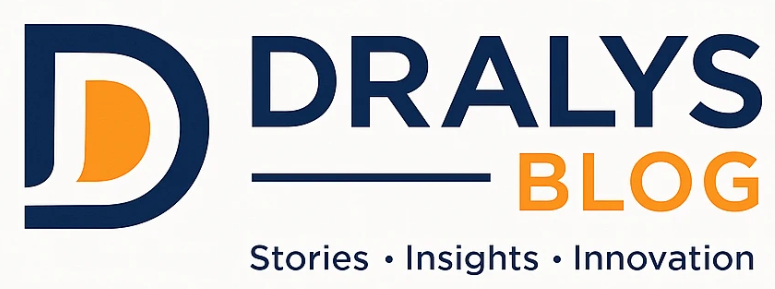Rising Tensions in the Middle East: A Crucial Examination of Leadership and Governance
Recent Israeli airstrikes on Lebanon have brought renewed concerns regarding the potential for escalating conflict along the Israel-Lebanon border. Israel’s justification for these operations centers on its ongoing conflict with Hezbollah, asserting a need to diminish the group’s military prowess and prevent them from bolstering their capabilities further. Simultaneously, these actions coincide with increased military actions in Gaza, despite a recently established ceasefire, and a staggering surge of airstrikes in Syria following the fall of the Bashar al-Assad regime.
While the geopolitical dynamics of the region are complex, this situation offers a vital lens through which to explore the interconnected themes of leadership, ethics, governance, and innovation. At the forefront of these developments is the upcoming meeting between US President Donald Trump and Ahmed al-Sharaa, marking the first visit of a Syrian president to the White House in many years. This visit raises pivotal questions about regional sovereignty and the broader implications for governance in the Middle East.
The Ethics of Military Engagement
The ethical implications of Israel’s military actions cannot be overlooked. The justification of such strikes under the banner of national security poses challenging questions. The repeated incursions into Lebanese airspace and the bombardment of Gaza require a careful evaluation of proportionality—where the benefits of military action must be weighed against potential civilian casualties and long-term political instability. In a time where ethical governance is more critical than ever, these actions compel an examination of alternatives to military solutions, such as diplomacy and conflict resolution initiatives.
Leadership in military contexts must draw upon not only tactical knowledge but also a robust ethical framework that prioritizes peace and stability over more immediate security concerns. The cyclical nature of violence in the region underscores the necessity for innovative approaches to address the root causes of conflict rather than merely its symptoms.
Regional Sovereignty and Global Diplomacy
The anticipated meeting between President Trump and Mr. al-Sharaa holds significant implications for regional sovereignty. Historically, the Syrian government’s international relations have been fraught with tension, and the outreach from the United States hints at a potential shift in traditional diplomatic stances. Such actions may reshape alliances and agitate the already delicate balance of power in the region.
If the United States recognizes al-Sharaa as a legitimate leader, it may challenge the existing narratives concerning authority and legitimacy amongst regional actors. This underscores an essential lesson in governance—the necessity of engaging with various stakeholders in an evolving political landscape. The meeting emphasizes the importance of diplomacy while simultaneously reflecting the complexities that arise when larger geopolitical interests intersect with local governance.
Sustaining Peace or Igniting Conflict?
The question arises: Can Israel maintain its ongoing military operations under the pretext of security? The answer is unlikely to be straightforward. Israel’s strategic intent might stem from a perceived necessity to mitigate threats posed by Hezbollah, yet how the international community perceives these actions can significantly affect Israel’s legitimacy on the world stage. This notion points to broader themes critical in leadership and governance—the accountability and transparency expected in military engagements.
The process of governance is inherently intricate, especially in regions characterized by protracted conflicts. The future of Israel’s military strategy will depend not only on its immediate security concerns but also on how it can align these actions with ethical governance and regional cooperation. Israel’s ongoing airstrikes can be perceived as a short-term tactic, yet their sustainability remains questionable without a clear path to peace.
The Role of Innovation in Governance
In light of recent tensions, the need for innovative governance models becomes paramount. A concerted focus on diplomatic innovation—moving beyond conventional practices—is essential. This may involve fostering grassroots movements for peace, encouraging local dialogues among conflicting parties, and leveraging technology for communication and transparency. Furthermore, it calls for harnessing international platforms to cultivate broader coalitions for stability—where collaboration transcends national borders.
Leadership, particularly in conflict-prone regions, should embrace innovative strategies that pivot from military solutions to sustainable development, education, and mutual understanding. Innovative diplomacy can lead to not only greater stability but also fortify the underlying structures necessary for long-term governance.
Dralys Insight
The current situation in the Middle East serves as a profound case study in the dynamics of leadership, governance, ethics, and innovation. As tensions escalate, the call for ethical military engagement is more significant than ever, highlighting the need for accountability and dialogue. This scenario showcases the critical importance of diplomacy, regional sovereignty, and an inclusive approach to governance that integrates various perspectives.
For leaders, the lessons are clear: prioritize transparency in military engagements, build alliances through innovative diplomatic methods, and recognize that sustainable peace requires collaboration at every level. The situation offers opportunities for developing new frameworks for international relations, emphasizing cooperation over conflict. As we look forward, the challenge remains to innovate governance models that respond to both immediate security concerns and the broader aspirations for peace and prosperity—transforming conflicts into opportunities for collective growth.
Adapted for Dralys Insight from global reports and public sources.

